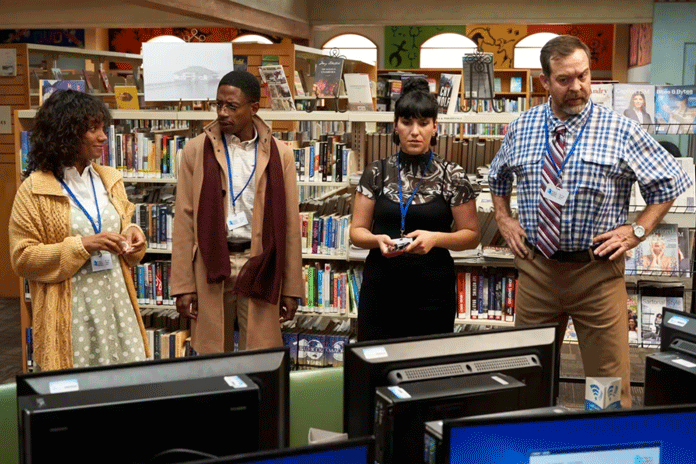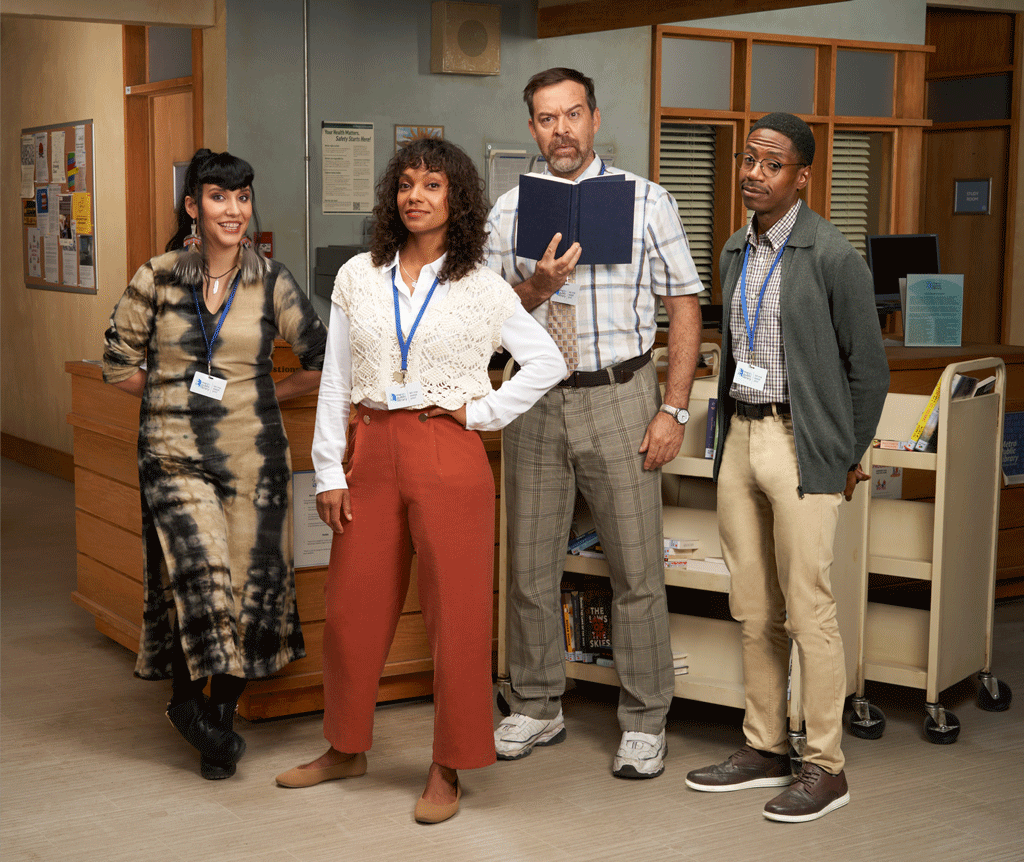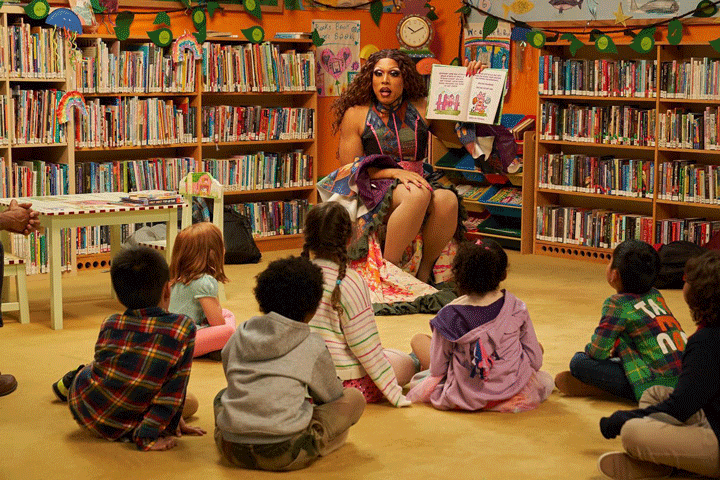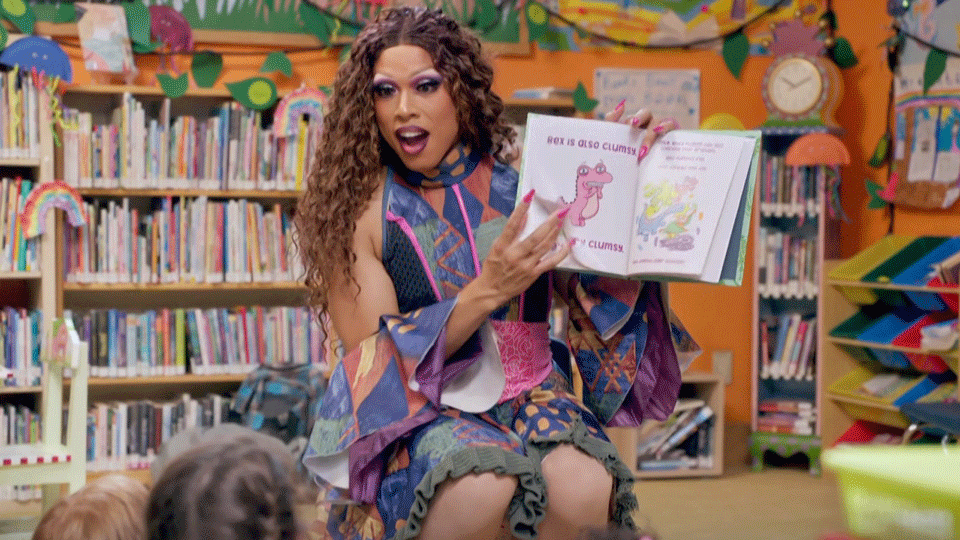“That’s the thing. What you see as trivial is actually a way of life and a livelihood for drag queens. You’re trying to take away that freedom from someone who needs it.” A quote taken directly from CTV’s newest sitcom Shelved, in an episode that takes on the daunting task of discussing “drag queen story hour” in a productive manner. In a society where the rights of LGBTQ+ individuals are under constant threat, this quote reminds us that no matter how trivial these issues may seem, life itself for these individuals remains in danger.
By January of this year, fifteen state legislators have moved to implement bills that ban “drag queen story hour,” leaving LGBTQ+ rights under attack across 30 per cent of states in the United States. By March of this year, one political party in Canada, the Conservative Party of Quebec, has petitioned to ban drag queen story hour in Quebec, citing “unanimous consent” for the action among the population. In Canada, drag queen story hours have been forced to move to safe and undisclosed locations, as they have overwhelmingly been overrun by far-right protests and hate motivated acts. The existence of drag queen story hour seems such a trivial issue when examining the plethora of truly concerning issues plaguing North America such as gun violence, increased white-supremacy and mental health crises, yet the contentious debate surrounding its allowance has proved that an issue seemingly “trivial” lies buried within extremely dangerous ideologies.
With a 64 per cent rise in hate crimes against LGBTQ+ individuals in Canada over 2021 and with a 20 per cent increase in hate crimes motivated by gender identity in the United States in 2020, it is evident that the LGBTQ+ community isn’t enjoying the same equality and quality of life as others in North America. Now, with the increased controversy and discrimination occurring over drag queen story hour and the outwardly hateful speech and actions that have occurred at such events, it seems that the situation for the LGBTQ+ community is only deteriorating.
CTV’s newest sitcom Shelved is aiming to directly shed light on exactly these issues. A breath of fresh air within a debate that has been marred by negativity, hate speech and violence, the writers and cast of Shelved have so clearly and concisely highlighted why not only tolerating but celebrating events like drag queen story hour is so important. Most notably, throughout a mere 21 minutes, Shelved thoroughly highlights that with respect, thoughtful and respectful conversation and a safe space to discuss concerns, it is possible to not only meet United Nations Sustainable Development Goals for Reduced Inequalities but to exceed these goals for the LGBTQ+ community.

Shelved, created by Anthony Q. Farrell – known for his work on The Office – follows the workplace lives of employees of an underfunded public library in Parkdale, one of Toronto’s most multicultural and marginalized neighbourhoods. Each episode takes on a different literary theme, often relating book genres and popular literary discussions to issues specific to Parkdale and the lack of resources the library faces daily.

The show’s third episode of its premiere season, titled “Drag: The Complete Story NONFIC DOO,” shows Parkdale Public Library welcoming local drag queens to host a free story time for families, an event that surprisingly draws little controversy from the public and instead heated debate among employees on whether the event should be permitted.
The episode sees Bryce – played by Paul Braunstein – the assistant branch head, who acts as the series’ regular Conservative perspective, butt heads with the branch head Wendy – played by Lyndie Greenwood –, clashing over whether drag queen story time is “age-appropriate” for young children. This debate acts as the focus for most of the episode, with Bryce very loudly protesting allowing children near what he calls “confusing” and not “age-appropriate” exposure to sexuality. Throughout his protests, Bryce is met with children plainly explaining to him why non-heterosexuality is simply normal, parents who view the event as a fun afterschool event for their children and people of various ethnic backgrounds and religions showing their excitement to meet drag queens and drag queens who highlight that at the most foundational level, they are simply there to read stories to kids in a fun manner and show them that you can be whoever you truly are.

The episode portrays Bryce in a manner much less violent and threatening to the reality that is seen within current society, in a way allowing for meaningful discussions to develop within the episode. Although not as extreme as the realities drag queens face, Bryce’s behaviour is still portrayed in a manner that exhibits he has hatred, but the softening of this hatred highlights to viewers that maybe Bryce isn’t truly hateful, maybe his prejudice is built on a foundation of lacking education and understanding. Maybe allowing Bryce to respectfully voice his opinions and then educating him on the importance of having events like drag queen story hour will help alleviate his pre-established prejudices.
This is exactly what Shelved does with Bryce’s storyline, allowing him to voice his opinions while also creating a dialogue that allows Bryce to unlearn his prejudices and understand why his behaviour may be hurtful. As a society where everyone is given freedom of speech, Shelved nails exactly how these dialogues and possibly uncomfortable conversations should happen. The show highlights how important “re-educating” prejudiced individuals are in the process of reducing inequalities.
The episode concludes with the best-case scenario, a scenario that in reality is what should be replicated within our reality. Bryce ends up speaking to one of the drag queens and learning that even though Bryce viewed them as completely different, they share a lot of the same non-drag related interests. It’s something that makes Bryce realize that someone he arbitrarily viewed as “predatory” or inappropriate for certain audiences is just people, people living their truth, the same way that he was living his. He realizes that everyone has something within them that may not be viewed as good, but being yourself, even when yourself means dressing up in drag, is not something that you should have to hide, especially not when it’s merely self-expression and not something that poses a threat to any person.

After months of seeing politicians, extremists and religious institutions debate whether drag queen story hour, an event that isn’t sexual in any nature but instead shows children that it’s okay to be who you want to be, Shelved’s take on the topic restores some faith in our society. Shelved highlights that the “issues” being debated truly are trivial in nature, this simply shouldn’t be a problem. Why is a democratic and supposedly free society is being yourself in a non-harmful manner a problem? The episode forces us to question why the effects of drag on children are even a topic of debate when children are dying in school shootings or facing mental health issues at soaring levels.
Shelved’s take is the best-case scenario. It so precisely highlights that drag queens pose no threat to children or their well-being, that holding events like this for the public increases visibility for a marginalized community and that with respect and open communication, we should be able to not only tolerate being your authentic self but welcome it. While an extremely optimistic take on the issue, our reality is that society will never be completely rid of bigotry and hatred, but in creating safe spaces where visibility, education and dialogue take center stage, Shelved makes it clear that it just might be possible to reduce arbitrary inequalities that the LGBTQ+ community faces and show people that being able to freely be yourself is a concept that applies to everyone.
